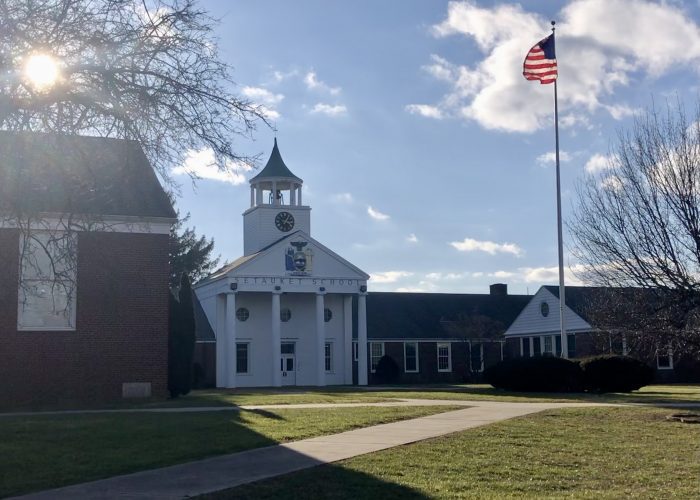Three Village school board increases property tax exemption for low-income seniors
By Mallie Jane Kim
Some area seniors and persons with disabilities will qualify for a 50% cut to the school portion of their property taxes next year, after the Three Village Board of Education voted during their Feb. 7 meeting to raise the maximum income levels on a tax exemption aimed at easing the financial burden on vulnerable groups.
The move comes after nearly a year of advocacy by area senior Rochelle Pollack, who approached the podium with her walker at several board meetings since March 2023 in order to ask the board to make the change. She said seniors have elevated medical and prescription costs — alongside the high inflation rates impacting everyone. “House prices have skyrocketed,” she said at an April 2023 meeting. “It’s great if you’re selling, but it’s not if you’re staying, as school taxes have also skyrocketed.”
Pollack pointed out that someone making $40,000 but paying $14,000 in property taxes is left with $26,000 to live on. “In this day of high inflation, gas, food, heat, medical procedures and prescriptions, I dare any of you to live on $26,000,” she told the board. “How can seniors?”
According to Deputy Superintendent Jeffrey Carlson, it’s unclear how much the savings for these groups will impact all the other homeowners in the area.
“What makes it tricky for the board is there’s no way to know how many people will now get this exemption,” Carlson explained, adding that changing the income levels opens up the exemption to a whole new group of people. “How many? No idea. We have no idea what income levels are, so it’s hard to say how much it will cost everyone else.”
During previous board meeting discussions of the exemption, Carlson compared it to splitting a restaurant bill. If two people in a group of 10 want to pay less because they only had water and salad, the other eight diners must pay more — the cost of the bill doesn’t change. “For one person to pay a little less, it means everyone else pays a little more.”
New York State raised the maximum allowable income levels in 2022 to $50,000 for those aged 65 and over, but the board opted to meet that increase halfway in light of uncertainty over how many seniors will take advantage of the tax credit, and what the real impact will be on all other homeowners.
The sliding scale approved by the board will mean people over 65, or those with disabilities, who make up to $39,500 can qualify for the maximum 50% benefit. At the lowest end of the exemption, those making $47,000 to $47,900 can get a 5% tax break. Residents would need to apply for the exemption to the town assessor by March 1.
Carlson explained that the state used to raise maximums for this income-based exemption incrementally each year, but until last year hadn’t made an increase since 2009, hence the substantial jump. Previously, residents needed to make $29,000 or less to qualify for the 50% discount.
Trustee David McKinnon vocally supported increasing the income levels for the exemption, as he had during previous board discussions, as a moral issue of fairness. He called property taxes regressive by nature since they tend to disproportionately burden people with lower incomes — the less a person earns, the higher percentage of their income they end up paying, on average. McKinnon also praised Pollack for her advocacy in raising the issue to the board.
“She’s been an incredibly effective advocate for seniors here,” he said. “I knew nothing about this particular issue, and she came in at considerable cost to herself.”
The board was unanimous in approving the increase, and left open the possibility of bringing the district in line with state maximums next year, depending on the impact this change has on the rest of the community.







